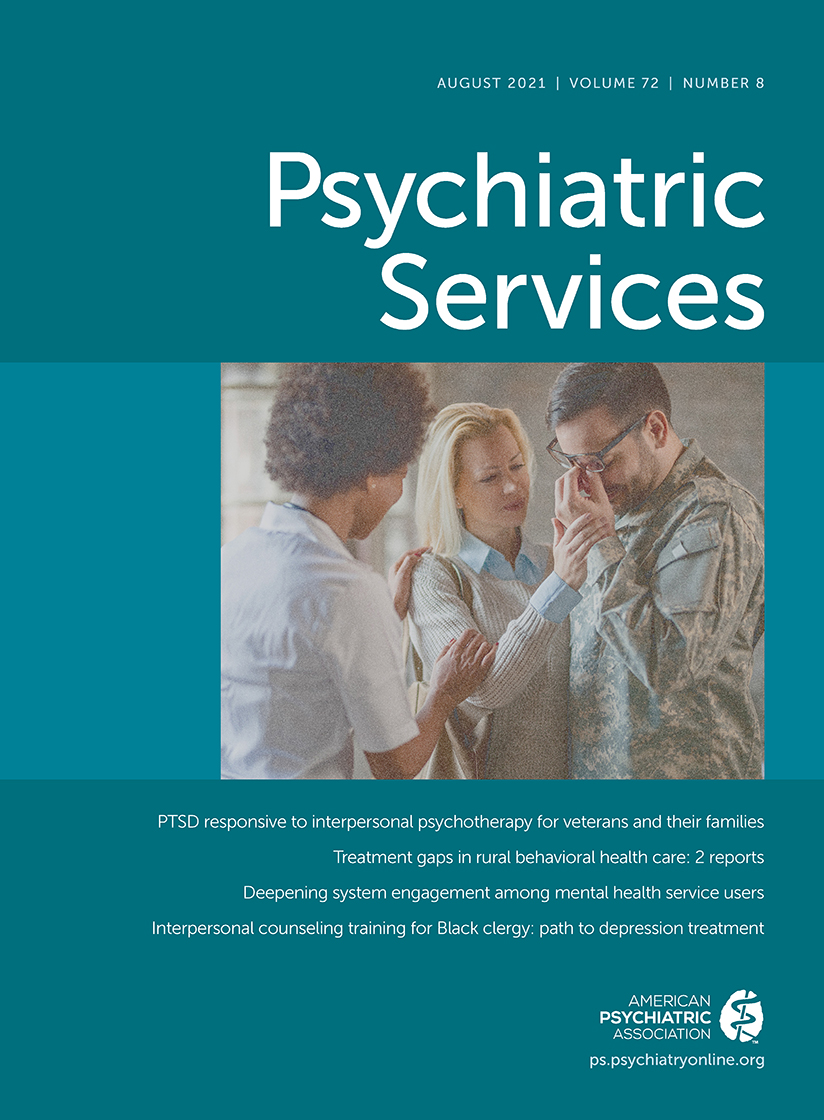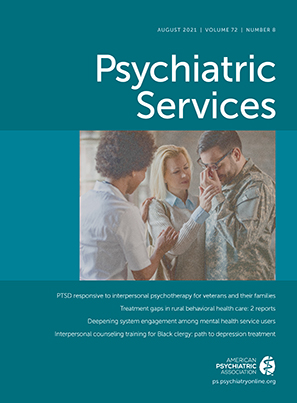Eating disorders are characterized by dangerous eating habits and body image disturbance. While eating disorders are often chronic (
1), many individuals make improvements and achieve what is typically referred to as “recovery.” Although the way we define and measure recovery has implications for service provision, including how progress is assessed and when services are terminated, there is no agreed upon definition.
Historically, eating disorder recovery has been defined as improvements in the domains of weight, behaviors, and thoughts. For example, one widely cited definition requires a body mass index (BMI) greater than 18.5 kg/m
2; no binge eating, fasting, or purging in the past 3 months; and a score on a standardized measure of eating disorder psychopathology less than one standard deviation above community norms (
2). These, along with other criteria in the field, were developed by researchers and clinicians. There is evidence however, that individuals with lived experience may also hold important insight into what recovery entails (
3). The importance of lived experience has been highlighted in other areas (e.g., self-injury) (
4), and such perspectives may prove useful in understanding eating disorders. Indeed, Wetzler and colleagues (
5) proposed a personal framework for including lived experience perspectives in the assessment of recovery.
The absence of lived experience perspectives in definitions of recovery is somewhat surprising given the numerous papers on the topic (
5,
6) and their near unanimous findings. Namely, individuals with lived experience repeatedly describe recovery as a complex nonlinear process (
7,
8) that exists in broader culture (
8,
9) and comprises several elements: decreased behavioral and cognitive symptoms (
6); increased psychological well-being (
5,
6), coping skills (
10), and social connection (
5–
8,
11); rediscovery and redefinition of self or purpose (
5,
8,
11); and transformation or growth (
5,
6,
8,
11). This unanimity, then, begs the question, Is it time to more fully integrate lived experience perspectives of eating disorder recovery into existing definitions?
In this Open Forum, we provide an overview of how the existing weight-behavior-thought framework fits (or does not fit) with the perspectives of individuals with lived experience. We comment explicitly on the implications of such a framework in the context of service provision. (An overview of these arguments, including concrete recommendations for professionals working with eating disorders, is available as an online supplement.) Notably, we use the term “recovery” to describe a continuous process (what some may call “recovering” or “in recovery”) rather than a static or binary state.
Weight
Although weight has long been an important aspect of recovery according to clinicians and researchers (
12), it was noticeably absent from a systematic review and qualitative meta-analysis of lived experience perspectives on recovery (
6). Indeed, professionals have argued that a single weight cutoff may not be an optimal marker for recovery, because BMI targets are insufficient to determine medical stabilization, fail to take into account individual differences, and can have negative impacts on treatment when individuals are discharged on the basis of weight alone (
13). Considering proportion of weight lost over time may therefore provide more insight into necessary weight regain in recovery (
13).
We contend, however, that when eating behaviors and attitudes normalize, weight should also stabilize. There may then be less of a need to focus on weight explicitly, especially because individuals with lived experience have indicated the lesser importance of this domain (
6). Although mental health professionals who specialize in eating disorders are encouraged to play a collaborative role in interpreting indicators of general medical well-being, they may wish to focus their time in sessions on emotional, cognitive, and behavioral factors. Moreover, while we acknowledge that weight may be relevant for some individuals (e.g., those who are severely underweight or have lost a lot of weight in a short period of time), shifting the focus away from weight may challenge unhelpful weight-related beliefs (e.g., overvaluation) held by most individuals with eating disorders. Thus, it seems fruitful to exclude weight as a primary indicator of recovery or well-being, when possible.
Behaviors
Unlike with weight, individuals with lived experience acknowledge decreased eating disorder behaviors as important in recovery (
6). However, traditional recovery frameworks define such decreases as complete abstinence for a specified period (
2), which individuals with lived experience argue does not fit with the nonlinear nature of recovery (
7,
8,
11). Recent research has shown that many individuals who have had eating disorders continue to exhibit some symptoms (
14). Using abstinence as a marker for recovery may then be problematic in that it sets people up for failure with unrealistic expectations that, when not met, may hamper motivation and effort for recovery. Therefore, although eating disorder behaviors are relevant when assessing eating disorder recovery, professionals are encouraged to consider the degree of change in eating disorder behaviors rather than absolute cessation.
We suggest that professionals focus on relative changes in symptoms. The significance of improvements is dependent on the individual’s initial presentation
and perception of his or her symptoms, including their everyday impact. Quality-of-life measures specific to eating disorders may be particularly well suited to capture this phenomenon. Thus, examining attitudes toward eating rather than self-reports of eating, such as food logs (which can be inaccurate), may have merit. Obtaining qualitative accounts of progress will also be important in assessing recovery status and continued treatment planning, especially given the subjective nature of recovery (
7,
8). We suggest that monitoring relative changes in symptoms may be accomplished by tracking and plotting behaviors or scores on questionnaires over time, as is currently done for weight monitoring in family-based treatment for anorexia. This approach not only keeps track of and provides visual representation of changes but also adheres with best practice standards for progress monitoring.
Thoughts
Individuals with lived experience have indicated that decreased eating disorder thoughts (i.e., disordered thoughts or urges or preoccupation/rumination/rigidity related to food, weight, or body) are important in recovery (
6) but that such decreases are insufficient on their own. Instead, individuals have highlighted the importance of psychological well-being, transformation and growth, and rediscovery of self (
5,
6,
8,
11). Recovery, then, comprises not just decreases in eating disorder symptoms, but also increases in well-being. The use of disorder-specific questionnaires may therefore be insufficient to capture growth in recovery. Combining these assessment tools with measures that assess psychological well-being more broadly, and across multiple domains, may provide greater insight into clients’ progress in treatment.
Furthermore, the nonlinear nature of recovery (
7,
8,
11) suggests that eating disorder thoughts are likely to fluctuate over time and circumstances. As with behavioral abstinence, having “normalized thoughts” (e.g., not thinking about weight loss or experiencing body image disturbance) as a criterion for recovery may lead individuals to feel as though they have failed at recovery, when, according to individuals who have experienced an eating disorder, these thoughts are perfectly normal (and indeed expected) in the recovery process. Given the subjective nature of recovery (
7,
8), it is likely that different individuals will have different interpretations of the presence of eating disorder thoughts in recovery. Understanding an individual’s unique perspective will enable the clinician to work collaboratively to build a life that is meaningful to the individual, irrespective of the presence of residual thoughts.
Theoretically, this perspective aligns with a recovery orientation, in which individuals with mental illness can experience symptoms (in this case disordered or preoccupied thoughts about food, body, or weight) and still live fulfilling and meaningful lives (
15). Thus, while decreases in the frequency and intensity of eating disorder thoughts should be considered indicative of progress in recovery, the absence of such decreases should not preclude an individual from claiming recovery. As described above, measuring other aspects of life (e.g., overall well-being) will likely yield more meaningful information about the individual’s psychological status and progress in his or her recovery journey.
Of note, and markedly absent in existing criteria, is the presence of increased social connection in recovery (
5–
8,
11). Individuals with lived experience have noted that social support can be important in facilitating and maintaining recovery (
7), and social connections have been identified as an essential feature (
7,
8,
11). We contend that the domain of thoughts would be better understood as
psychosocial factors involved in eating disorder recovery and that clinicians should consider the possible impacts of social supports and connection in recovery, especially when planning for discharge, termination, or service transitions.
Next Steps
Having situated the traditional weight-behavior-thought framework against the perspectives of those with lived experience, we argue that it is time to adapt our understanding and assessment of eating disorder recovery to include disorder-specific clinical indicators in a manner that is consistent with individuals’ lived experiences. First, meeting a single weight criterion does not seem optimal for a broad definition of eating disorder recovery. We suggest that a focus on other medical markers (e.g., blood work) and normalized eating behaviors and attitudes may be of greater importance in treatment settings, unless there is reasonable evidence that weight monitoring will yield additional and necessary information. Furthermore, adaptations are needed to the criteria for recovery in the domains of behavior and thought. As they are presently defined, these criteria are deficit focused and may be unrealistic for individuals with lived experience (
14). We suggest that a focus on change in behaviors and psychosocial factors, encompassing both self-evaluated decreases in disorder-specific symptoms and increases in other areas, may more accurately capture the experience of recovery. Specifically, we call for the inclusion and assessment of social functioning in such definitions, noting that many studies on lived experience have identified increased social connection as central to the recovery process.
Stemming from a growing evidence base that accounts for lived experience perspectives on eating disorder recovery, a more holistic assessment of recovery is needed in clinical settings. (Recommendations for such an approach are available in an online supplement.) Moreover, it will be incumbent upon researchers to identify ways to implement and evaluate this approach in future empirical work. This endeavor is essential to propelling the field forward and to integrating clinical perspectives with an understanding of recovery informed by lived experience.

